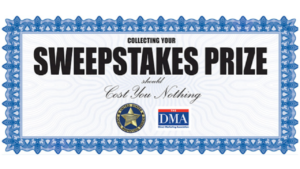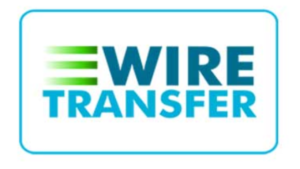
We all know that winning is a good thing. It can be a cash prize, or a trip to a dream destination. However, there are people who fall victim to scams that are based on fake prizes and sweepstakes. And day after day, these scammers stop at nothing to make sure that their next victim gives them as much money as possible, before moving on to the next one. It’s important to know what kind of scams related to this exist, and what you need to do in the event that your targeted as they’re next potential victim. Here’s the untold truth!!

The History Of This Type Of Scam:
This fake prize and sweepstakes scam, started by way of telephone. It’s hard to trace back to when this particular scam exactly started. However, because of technological advances, now scammers are using other mediums to employ their dirty deeds. The Internet is another big way for scammers to reach out to they’re potential victims.
As the Internet became more popular, scammers began to pick up other techniques to contact their potential victims. They would find ways to extract a person’s email address and send them a spammy email telling them that they won some kind of prize.
How These Scams Work:
Scammers will reach out to you either by telephone, or email. Some scammers will even exercise methods where your sent a text message saying that you won a grand prize associated with some kind of sweepstakes. Other than just good old fashioned email, scammers will even utilizing social media as another way to broadly reach out to anyone who may be gullible enough to claim their so called “prize”.
For the sake of this article, we’ll give you an example where someone is being contacted by the scammer thru email, about winning some so called “prize”. Here’s how it works. The scammer will send out an email telling their intended target that they’ve “won” the top prize (which could be anything), in they’re “mambo jambo” Sweepstakes.
They might also label you as a “lucky winner” (to make you feel special). But in order to claim the prize, you have to pay money upfront for “processing fees” or whatever variation it may be. Scammers will fabricate some kind of fee, in order to extract as much money from you as possible.
The scammers will often use free email accounts to employ their tricks and tactics. When you do receive an email, you’ll notice how they are often inconsistent in exercising good grammar and spelling skills. At the same time, you’ll also notice that there are other inconsistencies.
For example, if you are a citizen living in the United Kingdom, you’ll get an email about a prize you’ve won from some sweepstakes based in another country (Example: South Africa). And the prize value is in United States dollars. Most people will not know or understand what kind of currency a country uses. In this example, the country of South Africa has their official currency known as Rand. They do not use US Dollars as their official currency.
The Difference Between What’s Real And What’s fake:
While the thought process of you winning something might be either, “wow I really won the top prize, I can’t believe this is happening or, I can’t believe I really won this, or was chosen”, there’s something you need to know. This is exactly what the scammers want you to think and feel. It’s all a mind game. Targets like really young, older or naive people fall victim to these types of scams. This because of their lack in awareness and/or knowledge on how this scammers operate.
So here are some things to keep in mind so you can distinguish what’s real from what is fake, in terms of winning prizes or sweepstakes:
You Can’t Win A Sweepstakes That You Have Never Entered!:
This is a no-brainer. Everyone knows that a sweepstakes can be won legally only if you’ve initiated the application process. When signing up for a legit Sweepstakes for example, you would input your name, address, and phone number. And that’s it. Since this is a game of chance, you’ll either get picked as the winner, or never here anything back from the Sweepstakes.
There is no such thing as winning a sweepstakes that you’ve never entered in. And legitimate sweepstakes do not charge any upfront fees that need to be paid before the winner can claim they’re “prize . Yes, you do have to pay taxes on your winnings. However, those are paid to the IRS along with your regular tax returns. So if anyone tells you that you need to pay taxes and fees upfront, know that you’re dealing with a big scammer.

Buying Something Doesn’t Improve Your Chances Of Winning!
OK, so this might be true in one aspect. In the case of you investing in something like buying one million lottery tickets. But that’s because the odds of you winning the jackpot is like a million to one. So with this case, you might have a guarantee chance of winning. However (going back to my point), you can’t under any circumstances buy a product from a Sweepstakes, that’ll help improve your chances of winning they’re top prize. So if you’re asked to purchase something as part of the “contest”, you’re more than likely dealing with a big scammer.

A Scammer Asks You To Wire Money:
One of the tried and true signs of a scammer, is when they ask you to wire them money. Other times, they’ll ask you for your credit card or bank account information. Regardless, no legitimate sweepstakes will ever ask you for this type of information. If you happen to see this in an email, this should set off a red flag in your mind.
Scammers Send You A Fake Check:
Nothing screams the word “scam”, louder then receiving a check with your name on it in the mail. Keep in mind that cashing fraudulent checks themselves can get you in deep trouble. One thing you should note, is that if you have a cash prize of $600 or more, you’ll need to fill out an affidavit proving that you are the real person, before your cash prize is sent out. As for the phony checks themselves, know how to distinguish a good check from a bad check. Simply google how to determine a good check, and a bad one.
How To Protect Yourself From A Scam:
In order to protect yourself from a scam, it can be as simple as ignoring they’re email. Never under any circumstances give your personal information over the phone, or Internet. This includes bank account information, credit or debit card information, social security numbers, or anything that is tied to your finances or identity.
It is important to make people who may likely fall victim to this type of scam, aware. Be sure to clearly instruct them on what to do, and what not to do. It should be noted that they should know the difference between how a real contest or sweepstakes operates, from the fake. Being aware is key to being able to avoid being scammed all together.

My Final Conclusion For Fake Prize and Sweepstakes Scams:
Scams will continue for as long as we allow it. So it’s important for us to stay one step ahead, know what they are, how they operate, and how to avoid them. Always use protective measures. In the event you do fall victim to a scam, you should report it to your local police department, and file a report. If your bank account or credit card account has been compromise, contact authorities immediately and they should fix the issue in the best ways possible. Always remember, you cannot win a prize or sweepstakes you’ve never signed up for. Now you know the untold truth!
Do you have any experience with Fake Prize, or Sweepstakes scams? Have you been involved in a Fake Prize or Sweepstakes scam before? Do you have any questions concerning my scam review? If this is the case, please leave your comments or questions below, and I will be more than happy to get back to you. Thanks again for checking out my post, and good luck with your success online..
Were you looking for my top, legit work online recommendation instead?
Click here To Read My # 1 Recommendation!
Also, if you enjoyed reading and educating yourself on Fake Prizes and Sweepstakes scams, please don’t limit yourself. Feel free to read “all about” a different, online scam/scheme review like:
“All About” Online Investment Scams
“All About” 4 Different Visa Scams
“All About” Phone Call From Recruiter Scams
And Much More..



